15+ Best CMS Platforms for Websites in 2024: Which One to Choose?
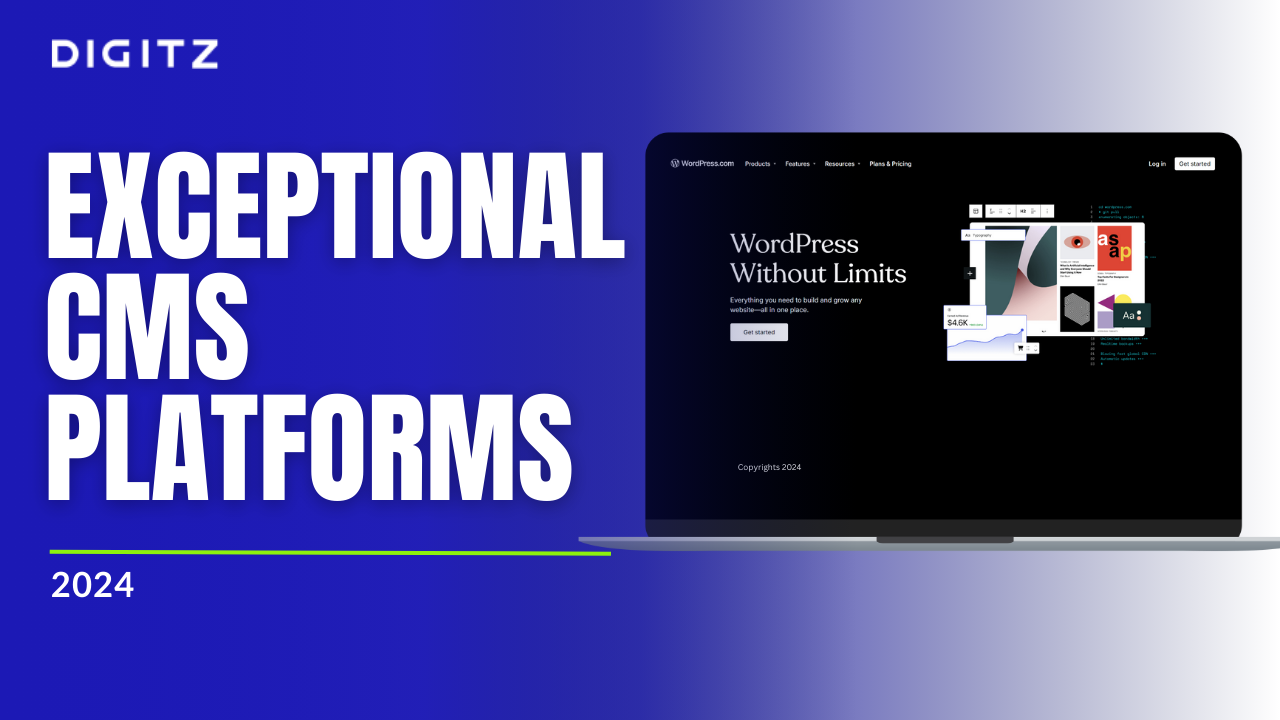
In the digital age, managing content effectively is key to building a successful online presence. Whether you're launching a blog, an e-commerce store, or a business website, choosing the right Content Management System (CMS) can make a significant difference in your site's performance and ease of use. With countless CMS platforms available, each offering a unique set of features and benefits, it can be challenging to pick the right one for your needs.
This comprehensive guide explores over 15 of the best CMS platforms for 2024, detailing their pros, cons, pricing, and ideal use cases to help you make an informed decision.
What is a Content Management System (CMS)?
A Content Management System (CMS) is software that enables users to create, manage, and modify digital content without requiring in-depth technical knowledge. It serves as the backbone of a website, simplifying content creation and management through a user-friendly interface. A CMS platform provides tools for creating web pages, uploading media, publishing blog posts, and more, making it accessible for non-technical users to manage and update their sites.
Why You Need a CMS Platform
A CMS is essential for anyone looking to build and maintain a website without dealing with complex coding or development. It offers:
- User-Friendly Interface: Simplifies content creation and management.
- Scalability: Supports websites of all sizes, from simple blogs to large enterprise solutions.
- Customization: Allows you to tailor your site to match your brand’s identity.
- SEO Optimization: Provides tools and plugins for enhancing search engine visibility.
- Community Support: Many CMS platforms have active communities and extensive documentation.
1. WordPress
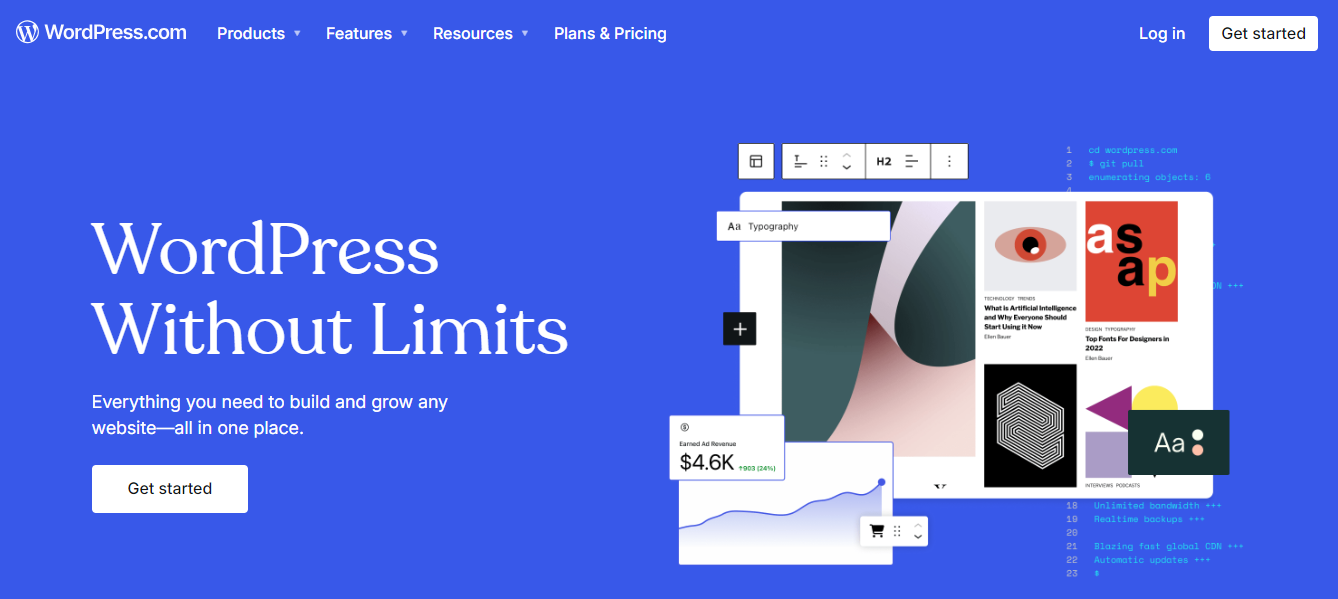
Overview: WordPress is the most popular CMS platform in the world, powering over 40% of websites globally. It's an open-source platform, offering flexibility and an extensive library of plugins and themes. WordPress is ideal for a variety of websites, including blogs, e-commerce stores, and business websites.
Key Features:
- Extensive plugin library for added functionality
- Thousands of free and premium themes
- User-friendly editor with Gutenberg block functionality
- SEO-friendly with numerous optimization plugins
- Robust community support and regular updates
Best Suited For: Bloggers, small businesses, and e-commerce websites.
Pricing: Free for basic use. Premium plans for advanced features start at $4/month.
2. Joomla
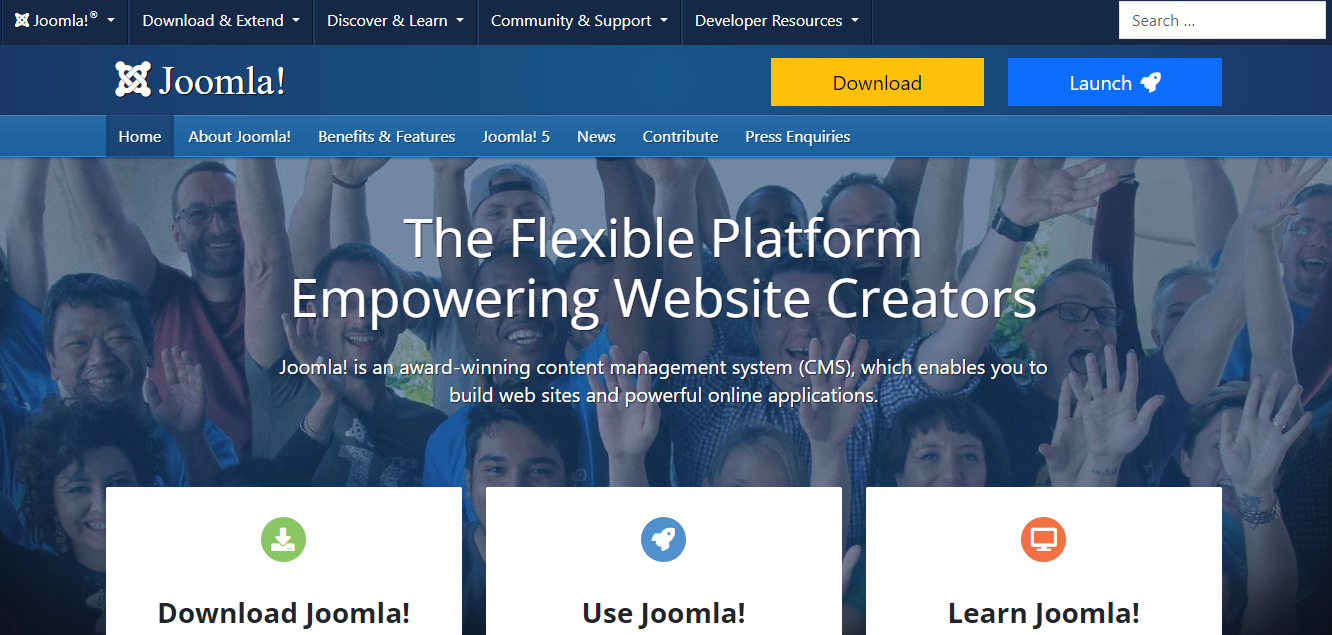
Overview: Joomla is another powerful open-source CMS that offers flexibility and a range of advanced features for managing complex websites. With a steeper learning curve compared to WordPress, Joomla is preferred by developers and users who need greater control over their site's architecture.
Key Features:
- Advanced user management and access control levels
- Supports multilingual websites out-of-the-box
- Extensive extension library for added features
- Built-in caching and performance optimization
Best Suited For: Complex websites with multiple stakeholders and advanced content management needs.
Pricing: Free, but costs may apply for premium extensions and templates.
3. Drupal
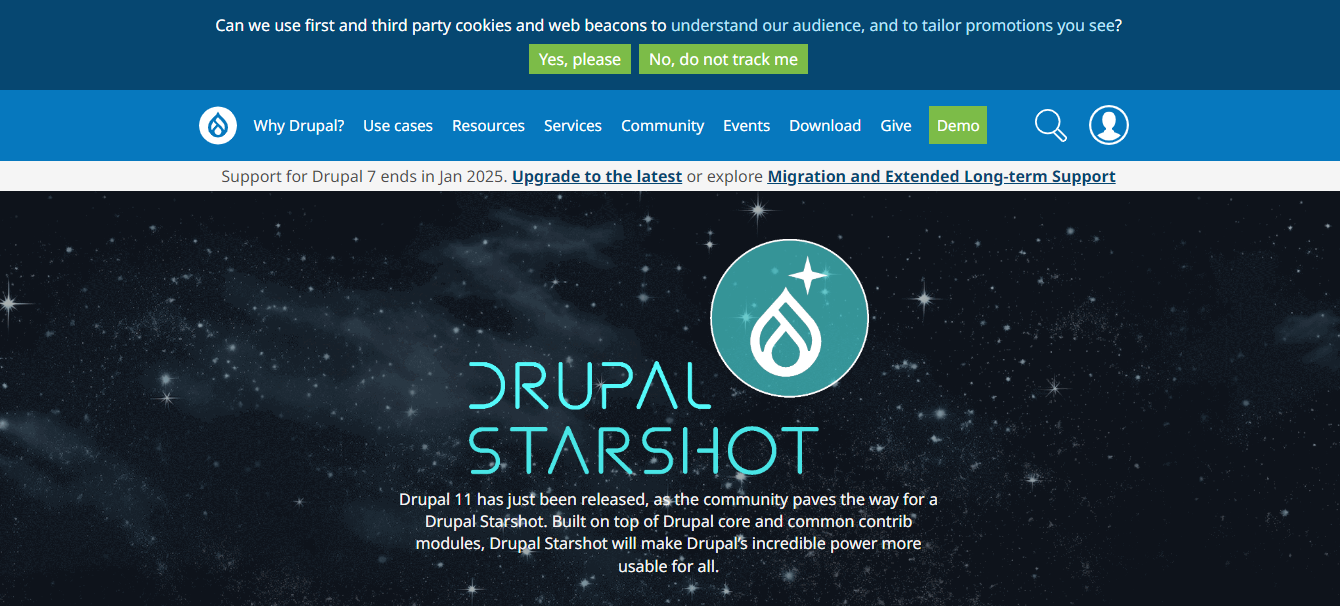
Overview: Drupal is known for its high degree of flexibility and scalability, making it a favorite among developers building large-scale websites. It is ideal for websites that require advanced content management and complex data structures.
Key Features:
- Highly flexible content architecture
- Extensive API support for custom development
- Built-in multilingual and content translation capabilities
- Strong security features
Best Suited For: Enterprise-level websites, government sites, and large organizations.
Pricing: Free, but additional costs apply for hosting, premium modules, and themes.
4. Shopify

Overview: Shopify is a dedicated e-commerce CMS platform designed to help users build and manage online stores with ease. With its built-in e-commerce features, secure payment gateways, and extensive app store, Shopify is perfect for anyone looking to launch an online store quickly.
Key Features:
- Drag-and-drop store builder
- Secure payment gateways and easy checkout process
- Integrated POS system for brick-and-mortar stores
- SEO and marketing tools
Best Suited For: E-commerce stores and businesses looking to sell products online.
Pricing: Starts at $29/month, with higher-tier plans for advanced features.
5. Wix
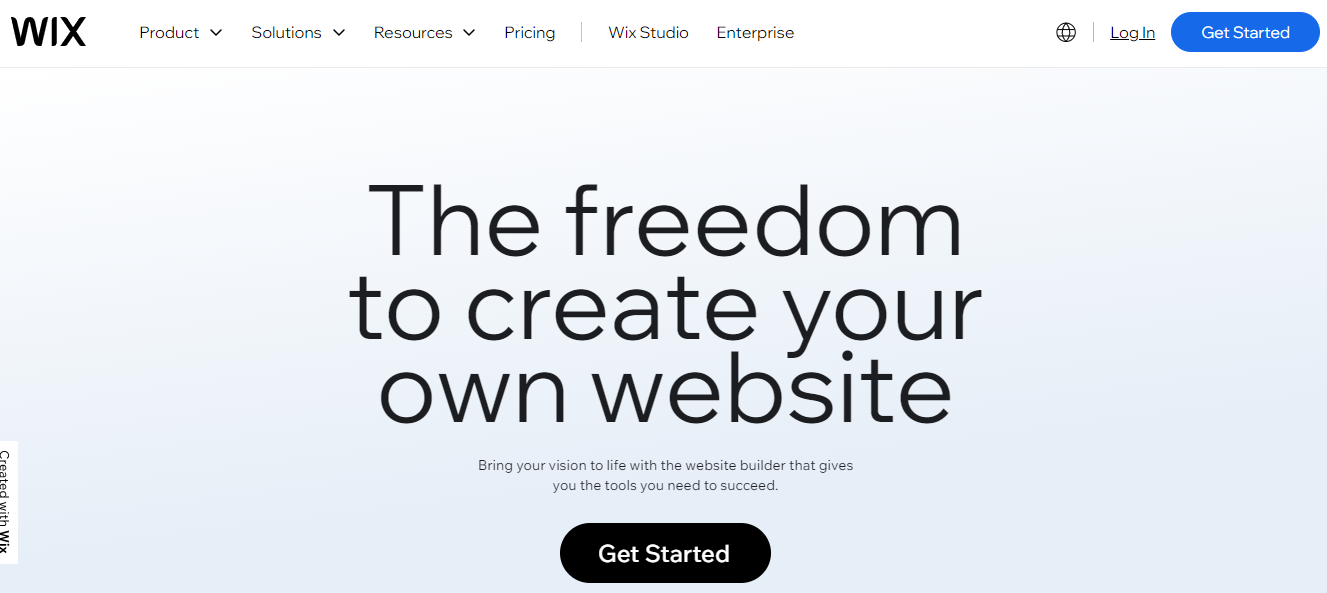
Overview: Wix is a beginner-friendly website builder and CMS that offers drag-and-drop functionality, making it easy for users to create beautiful websites without any coding knowledge.
Key Features:
- Intuitive drag-and-drop editor
- AI-powered website design with Wix ADI
- Integrated SEO tools
- App market for additional functionalities
Best Suited For: Small businesses, freelancers, and creative portfolios.
Pricing: Free for basic use, with premium plans starting at $14/month.
6. Squarespace
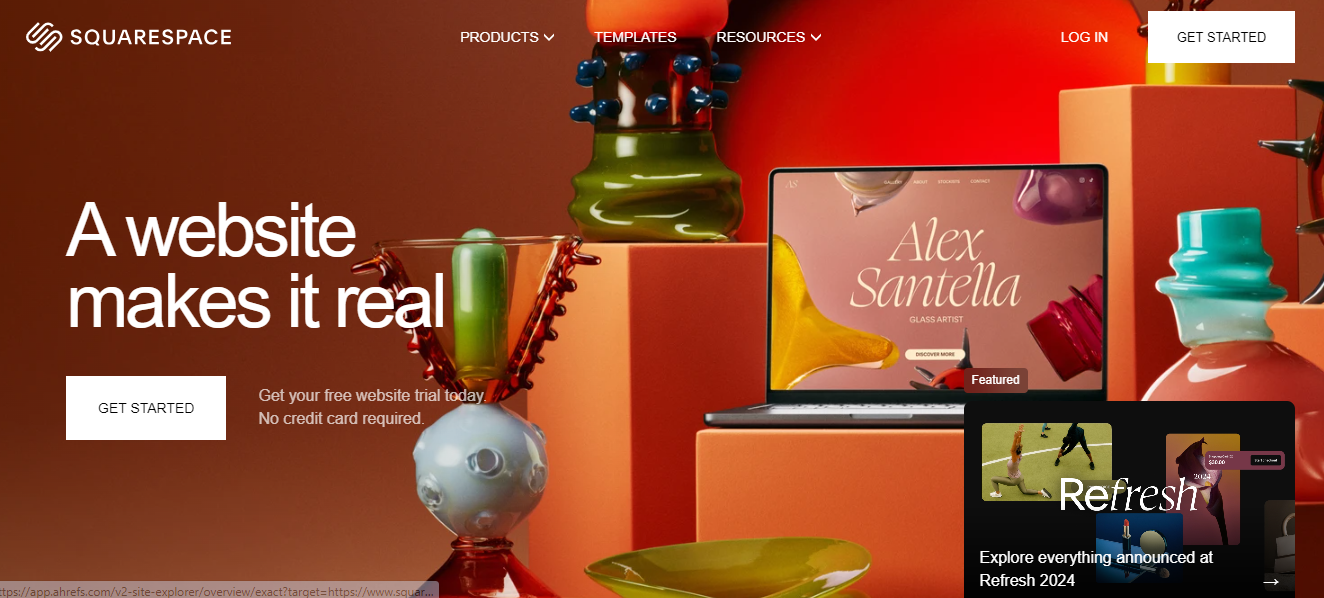
Overview: Squarespace is a visually stunning website builder and CMS known for its beautiful design templates. It’s ideal for users who prioritize aesthetics and want to create visually appealing websites for portfolios, small businesses, or creative projects.
Key Features:
- Award-winning templates and design customization
- Built-in e-commerce functionality
- Blogging capabilities
- Integrated marketing and SEO tools
Best Suited For: Creative professionals, artists, and small businesses.
Pricing: Starts at $12/month.
7. Magento
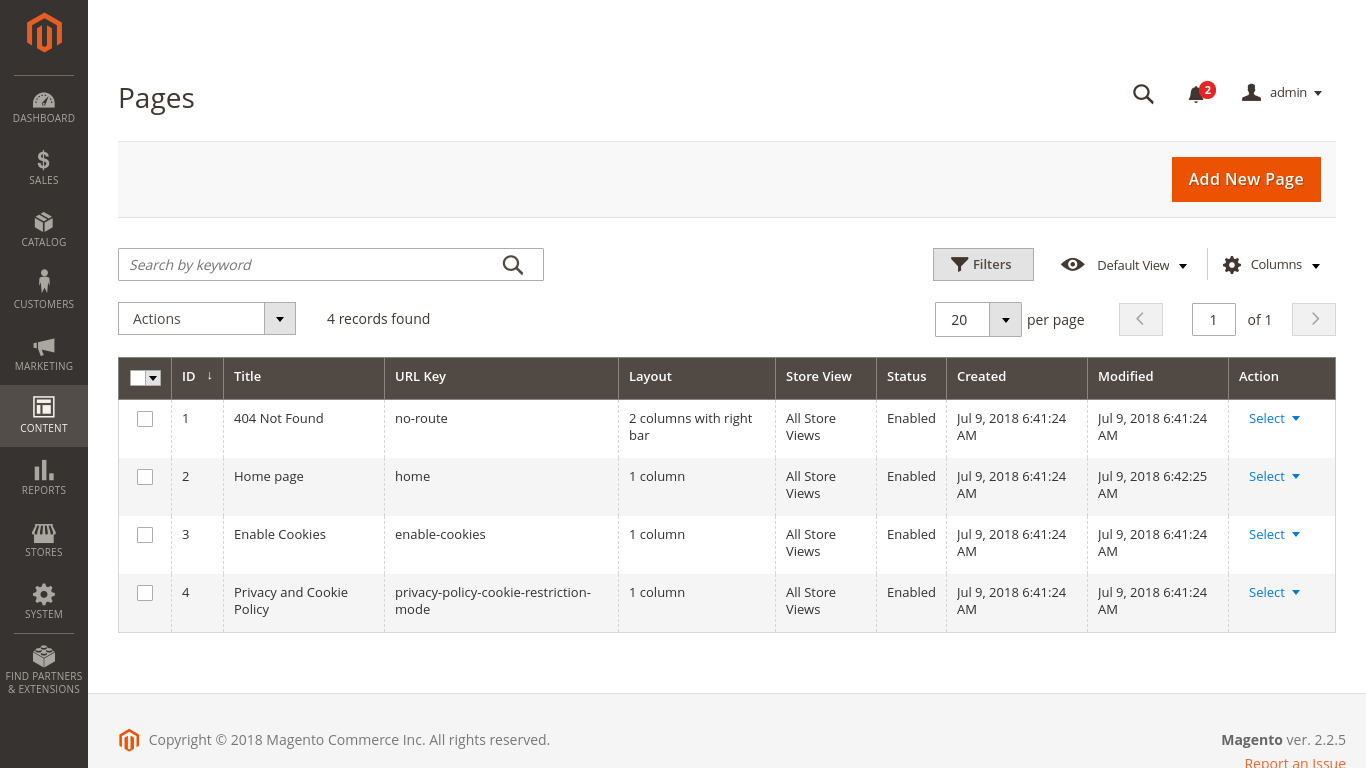
Overview: Magento (now Adobe Commerce) is a powerful open-source e-commerce platform designed for large online stores and enterprises. It offers extensive customization options, a robust extension marketplace, and advanced scalability features, making it ideal for businesses with complex e-commerce needs.
Key Features:
- Advanced product and order management
- Extensive API support and integrations
- Built-in security and performance optimization
- Multi-store management
Best Suited For: Large e-commerce businesses and enterprises.
Pricing: Free for the open-source version. Adobe Commerce pricing varies based on business needs.
8. Ghost
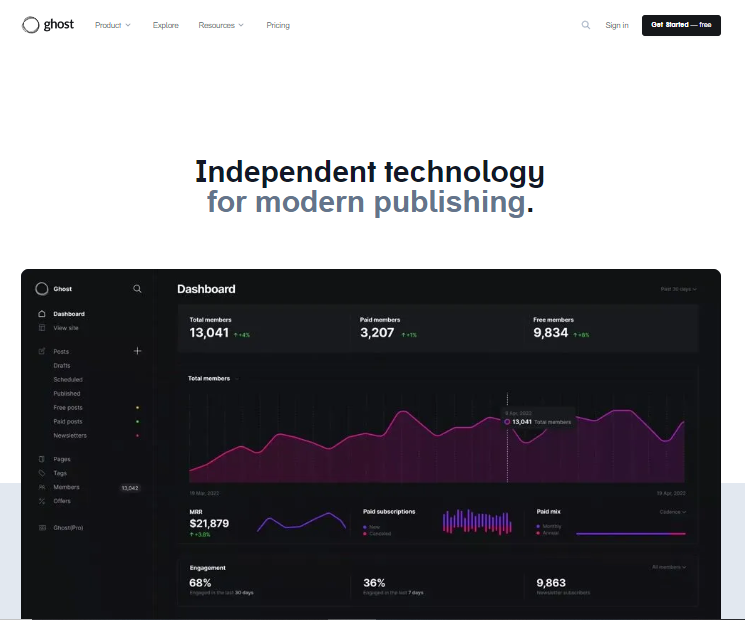
Overview: Ghost is a CMS platform designed specifically for bloggers and content creators. It offers a distraction-free writing environment and fast, SEO-friendly websites. Ghost is open-source, with a focus on simplicity and performance, making it ideal for content-driven websites.
Key Features:
- Clean and intuitive content editor
- SEO and social media integration
- Supports membership and subscription models
- High performance and security
Best Suited For: Bloggers, content creators, and publishers.
Pricing: Starts at $9/month for managed hosting.
9. HubSpot CMS
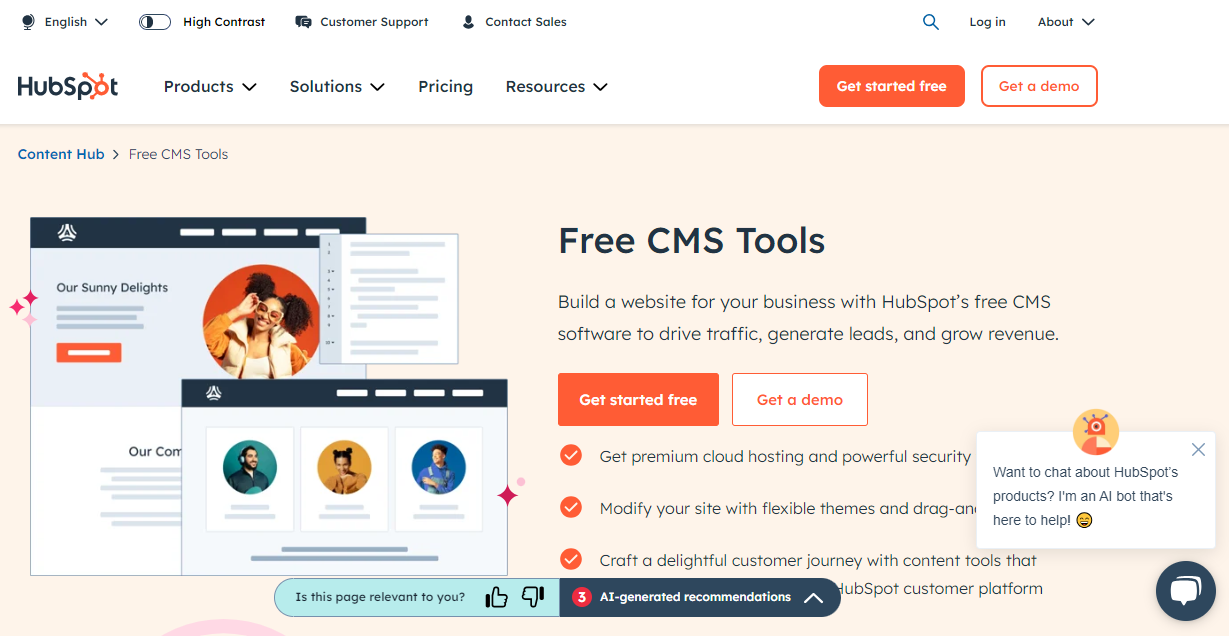
Overview: HubSpot CMS is a powerful, all-in-one content management system designed for businesses looking to integrate their website with CRM and marketing tools. It offers a range of features like lead capture, dynamic content, and built-in SEO recommendations, making it ideal for marketers and business owners.
Key Features:
- CRM integration and marketing automation
- Drag-and-drop editor for easy content creation
- Personalized content and dynamic pages
- Integrated analytics and reporting
Best Suited For: Businesses looking for a fully integrated marketing and sales platform.
Pricing: Starts at $25/month, with additional marketing and CRM features available.
10. Webflow
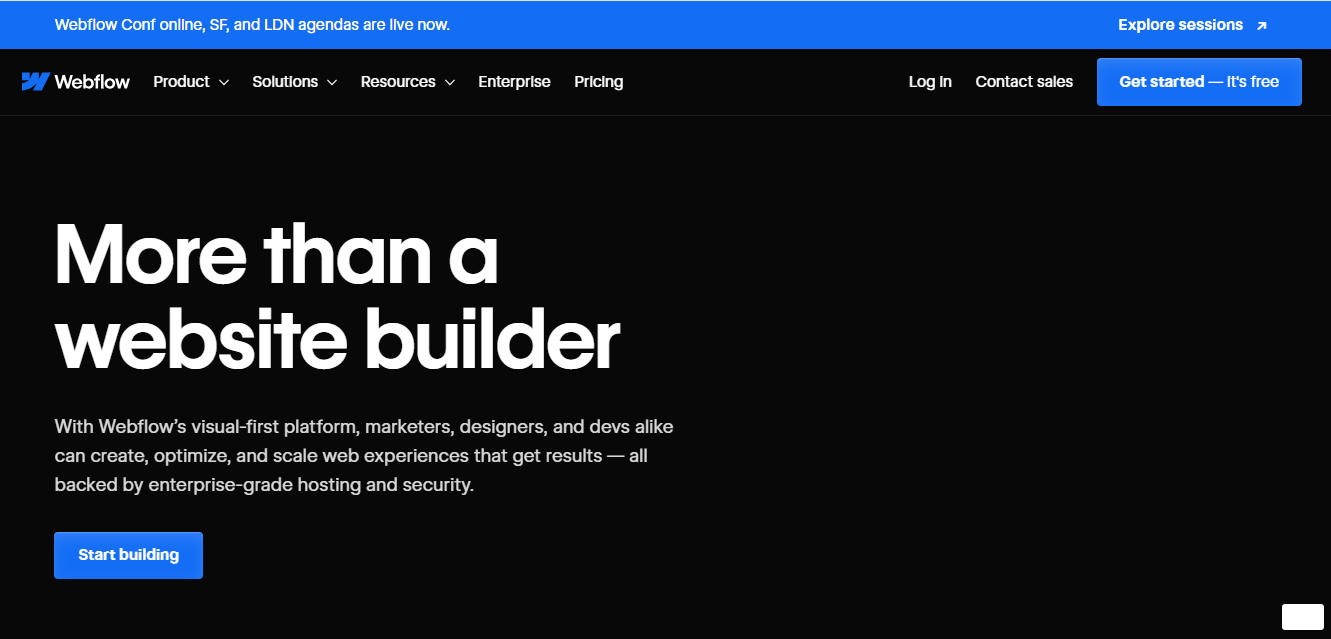
Overview: Webflow is a visual web design tool that enables users to create responsive websites without writing code. It combines a CMS with a design tool, allowing designers and developers to build custom websites with pixel-perfect precision.
Key Features:
- Visual drag-and-drop builder with full design control
- Custom interactions and animations
- Built-in CMS for dynamic content
- SEO and performance optimization tools
Best Suited For: Designers, agencies, and developers looking to build visually rich websites.
Pricing: Starts at $12/month for basic sites, with higher-tier plans for more complex projects.
11. TYPO3
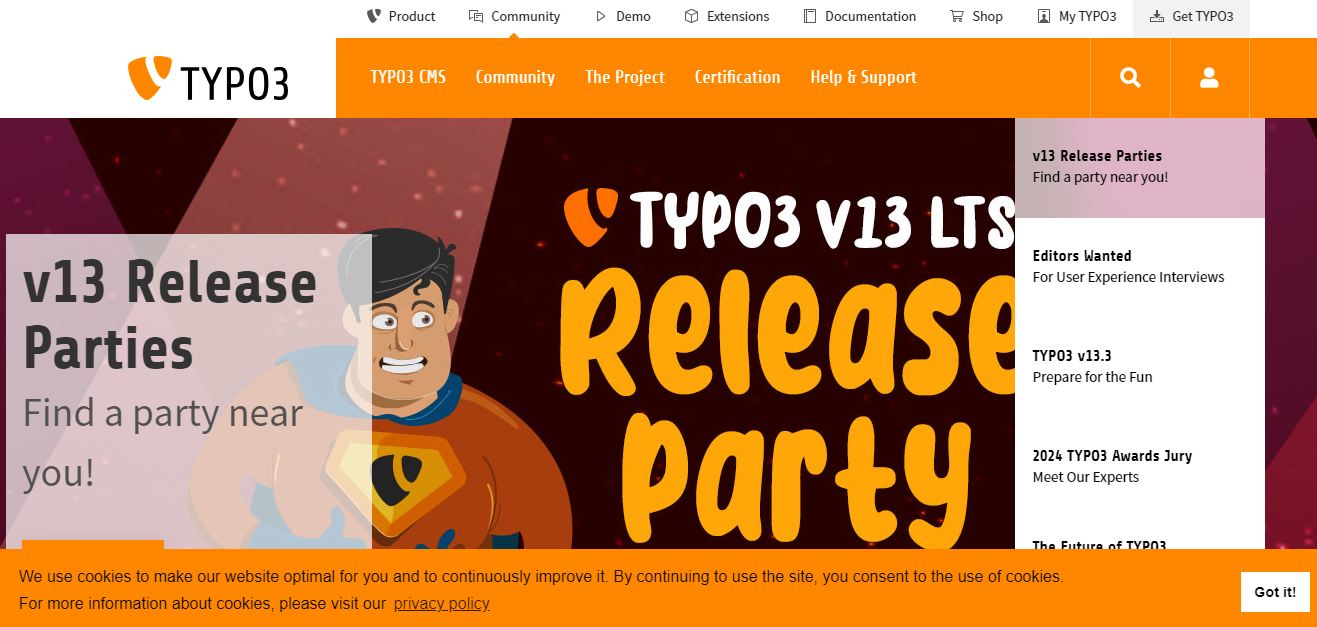
Overview: TYPO3 is an open-source CMS platform designed for enterprise-level websites. It offers advanced features and scalability, making it a popular choice for corporate and multilingual websites. TYPO3's flexibility allows for custom development and integration, making it a robust solution for complex web applications.
Key Features:
- Advanced content management and workflow tools
- Supports multi-site and multilingual setups
- Highly customizable and extensible
- Strong focus on security and compliance
Best Suited For: Large organizations, government websites, and enterprise solutions.
Pricing: Free, but costs may apply for premium extensions and custom development.
12. Contentful
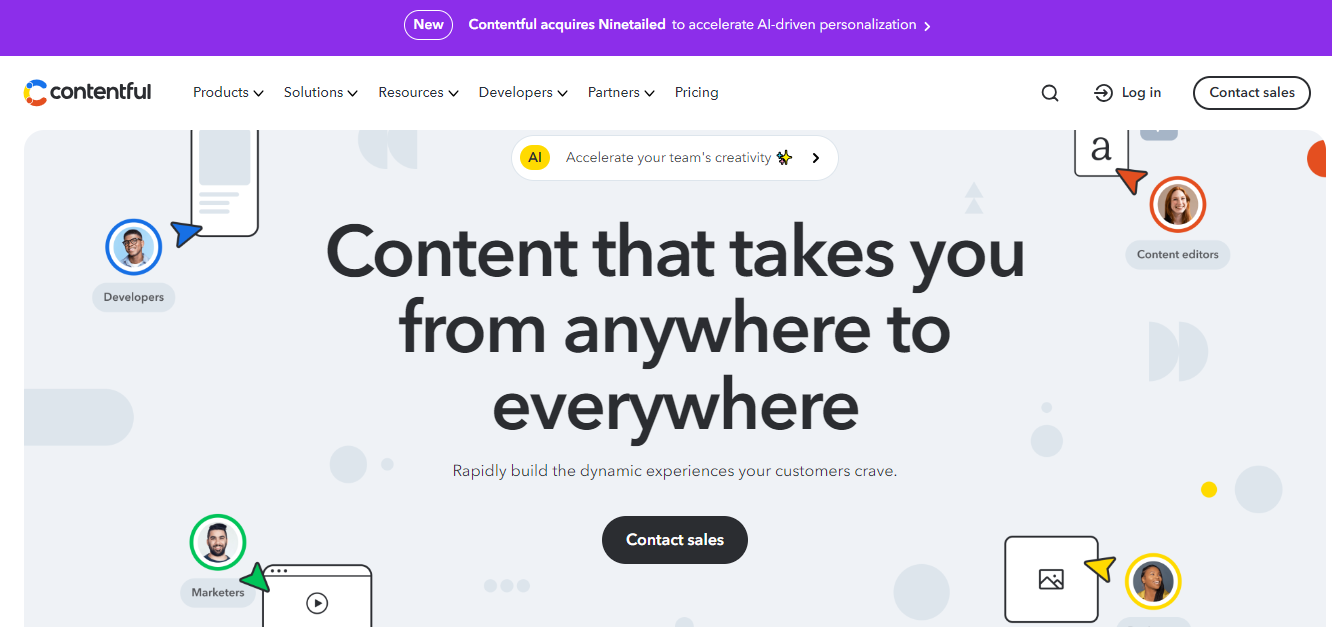
Overview: Contentful is a headless CMS platform designed for developers looking to build custom digital experiences. Unlike traditional CMS platforms, Contentful separates content creation from presentation, allowing content to be delivered across various channels and devices.
Key Features:
- API-first approach for custom integrations
- Flexible content modeling
- Supports multi-channel content delivery
- Developer-friendly with robust API documentation
Best Suited For: Developers building custom digital experiences.
Pricing: Free for basic use, with premium plans starting at $489/month.
13. Sitecore
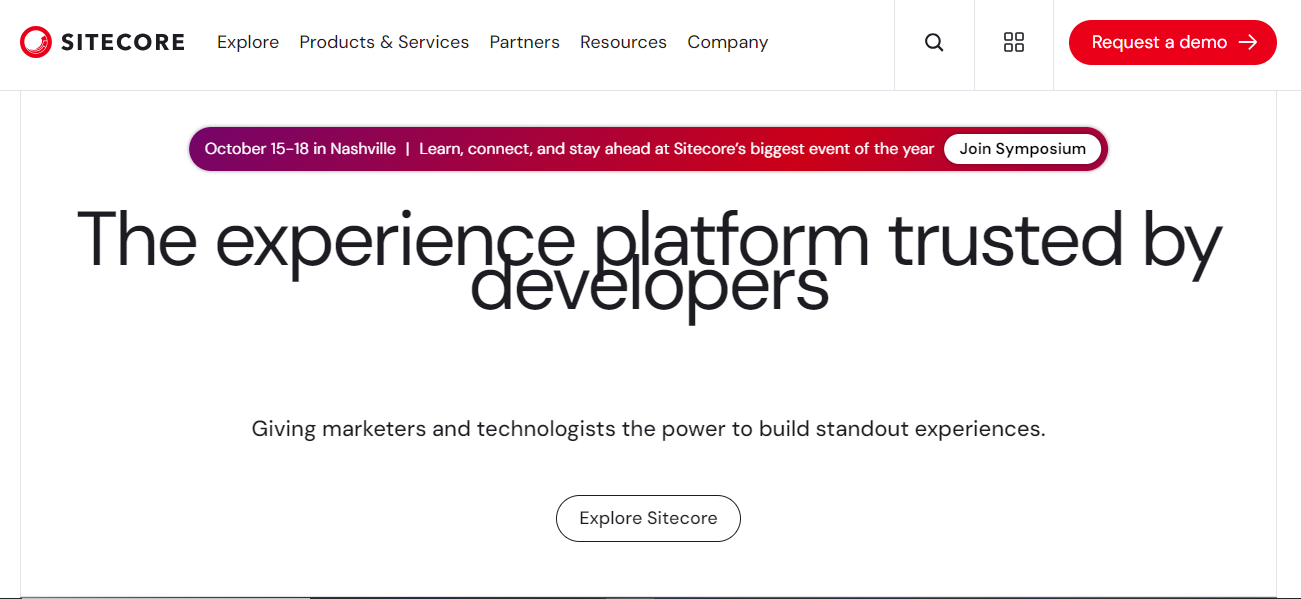
Overview: Sitecore is an enterprise-level CMS that combines content management with powerful marketing capabilities. It offers personalization, customer insights, and multi-channel content delivery, making it ideal for large organizations looking to create highly targeted digital experiences.
Key Features:
- Personalization and customer segmentation
- AI-driven content recommendations
- Integrated marketing and analytics tools
- Supports multi-site and multilingual content
Best Suited For: Enterprises looking for an integrated solution for content management, personalization, and marketing automation.
Pricing: Pricing is customized based on business needs and can be quite expensive for small to medium businesses.
14. ExpressionEngine
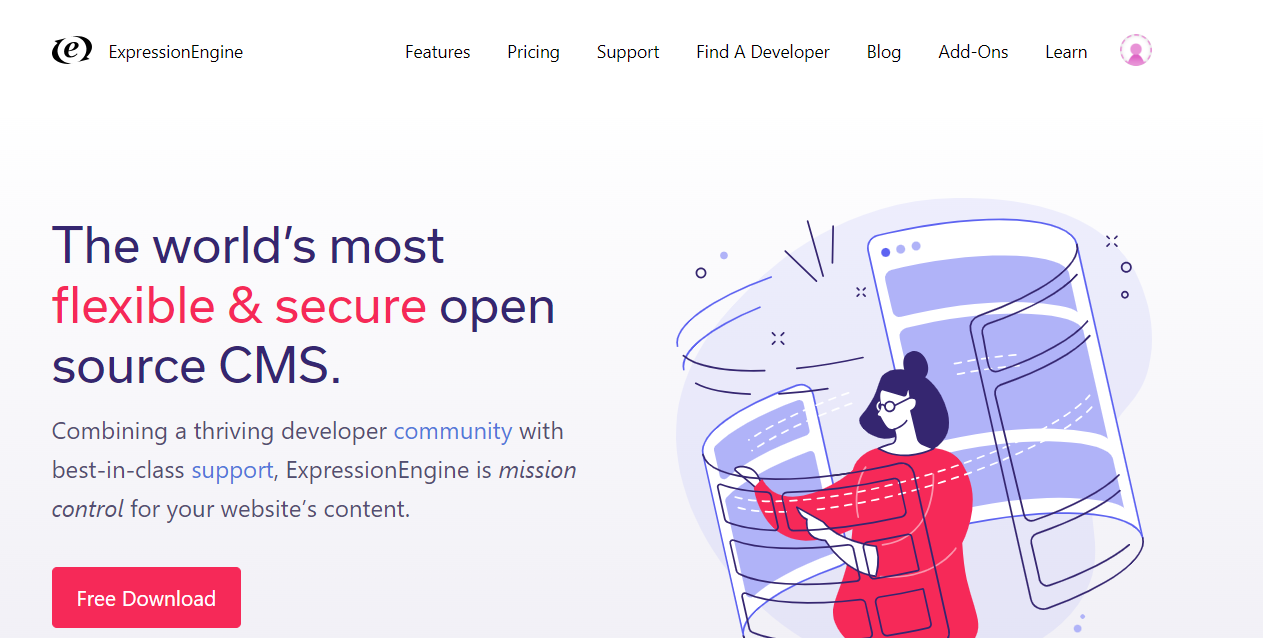
Overview: ExpressionEngine is a flexible and secure CMS platform that is known for its modular architecture. It’s an ideal choice for developers and designers who want a customizable solution for creating complex, content-heavy websites. ExpressionEngine also offers built-in security features, making it a reliable choice for businesses concerned about data protection.
Key Features:
- Modular architecture for custom development
- Secure CMS with built-in protection against common threats
- Powerful template engine for custom layouts
- Strong community support and extensive documentation
Best Suited For: Developers, designers, and businesses that require advanced security and customization options.
Pricing: Free for the core version. Pro plan starts at $299 per year.
15. BigCommerce
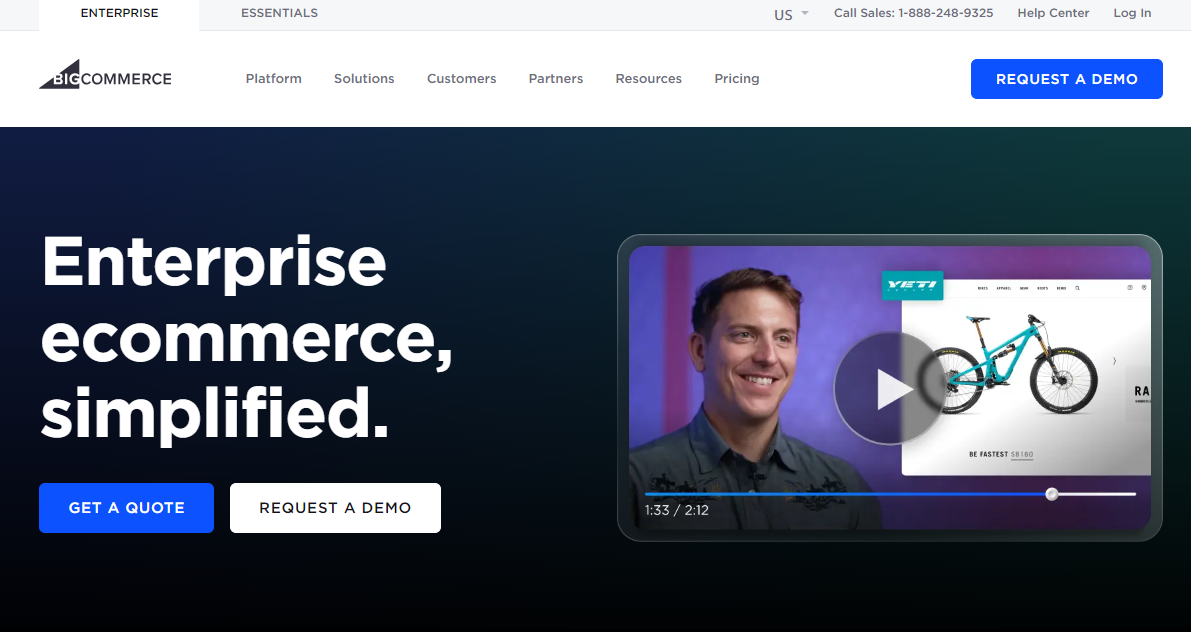
Overview: BigCommerce is a leading e-commerce CMS that offers robust features for building and managing online stores. It provides a range of built-in tools for SEO, marketing, and analytics, making it easy for business owners to grow their online presence. BigCommerce supports multi-channel selling, allowing users to expand their reach through platforms like Amazon, eBay, and social media.
Key Features:
- Multi-channel selling across Amazon, eBay, and more
- Built-in SEO and marketing tools
- Customizable checkout experience
- Advanced product management and order processing
Best Suited For: Businesses looking to scale their e-commerce operations across multiple platforms.
Pricing: Starts at $29.95/month for the standard plan, with enterprise solutions available.
Final Thoughts
Choosing the right CMS platform is crucial for the success of your website in 2024. Each CMS comes with its own strengths, tailored for different user needs—whether you're a blogger, small business owner, or running a large e-commerce operation. From the flexibility of WordPress and Joomla to the advanced e-commerce features of Shopify and BigCommerce, this guide highlights the best CMS platforms available today.
UAE
Dubai Silicon Oasis, P.O. BOX: 6009, Dubai, UAE
Phone: +971 (54) 745-9146CANADA
1738 The Pines Mississauga, Ontario Canada L5J 4V5
Phone: +1 (705) 930-6536